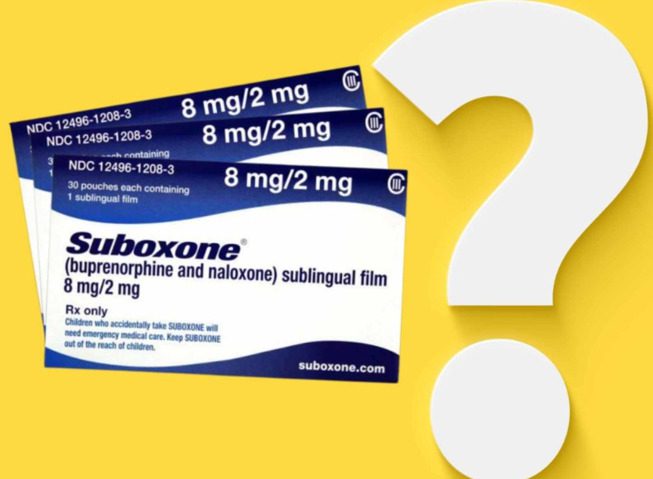Suboxone has become a popular choice for treating opioid addiction. A combination of buprenorphine and naloxone, which bind to opioid receptors in the brain, is used. Users of opioids have a new option to control their withdrawal symptoms and reduce their cravings for the substance. Many people who have visited Suboxone Clinic have said it saved their lives and was the most helpful treatment option available.
The danger of accidental overdose was also shown to be much lower, with one study reporting a reduction of 50% in fatal overdoses. Despite Suboxone’s efficacy, some critics continue to argue that it’s just as risky as the opioids that patients are attempting to avoid. Consequently, many false beliefs, such as those debunked below, spread.
1. Suboxone is more hazardous and addictive than opiates
Suboxone has a very low potential for causing an overdose. Suboxone is merely a partial opiate receptor antagonist while having a comparable effect on receptors as opiates. Because of this, the effects of Suboxone are milder than those of other opiates. Finally, a molecule can alleviate opiate withdrawal symptoms without triggering an overdose.
Overdosing is possible with Suboxone if it is combined with other medicines. You should talk to your doctor before taking any other drugs with your Suboxone, as doing so can increase your risk of experiencing adverse effects.
2. Suboxone is not a good long-term solution for addiction recovery
Recovering addicts already know that Suboxone is a crucial component of their treatment. Consumption of an opioid binds to reward and pleasure centers in the brain, reducing the user’s perception of pain. High levels of these “pleasure” signaling molecules in the brain can lead to euphoria. When the brain receives the neurotransmitters, it seeks the sensation much more than it would otherwise enjoy.
That’s why opioid addiction can be so widespread. Addiction is a cycle that can be difficult to stop, and it begins with desires that can be tough to satisfy. Due to its partial binding to opioid receptors, Suboxone does not provide the high. While this is undoubtedly good news, it doesn’t guarantee a smooth road to sobriety for those struggling with addiction.
Addicts in recovery should avoid using opiates and comparable narcotics if they want to succeed long-term. Suboxone treatment is just as effective as the user makes it, and with it, the patient can see long-lasting outcomes so long as they stick to the recovery process.
3. Suboxone is not a treatment; it’s a Drug
A minority of people argue that because Suboxone is a drug, it cannot be called therapy. There is also plenty of misconceptions regarding where Suboxone can be gotten from, with some pointing out that Suboxone is a narcotic distributed on the street. Although dealers might sell Suboxone, that does not diminish the benefits and proof of this treatment. Stories abound of young people becoming intoxicated off of Nyquil. However, the medicine is still widely used because it reduces insomnia and prevents the flu.
Addiction treatment, if possible, should incorporate therapy due to the complexity and persistence of the disease. The use of counseling, group therapy, and other support forms effectively reduces the likelihood of relapse. But this does not rule out Suboxone as a standalone treatment option. We consider Suboxone an effective treatment if it reduces cravings and helps the person remain on the path to sobriety.
4. Suboxone isn’t suitable for long-term use
There are no long-term negative effects of Suboxone shown in trials, although there is a great discussion among doctors regarding how long therapy should last. Everyone needs their own time to heal. Some recovering addicts may need to take Suboxone for far longer than others. Short-term usage of Suboxone has been linked to relapse because it does not provide enough time for the user to overcome the severe cravings that opiates generate.
As was previously noted, Suboxone works best when paired with psychotherapy. Long-term sobriety may necessitate both Suboxone and therapy.
5. Addicts are weak
Opiate addicts have a terrible reputation, but this is true of all addicts. Their addiction is to blame for this. Because there is no single cause for addiction, this kind of prejudice is incredibly myopic. Prescription pain relievers are often the gateway drug for those who experiment with opioids and develop an addiction. Addicts face intense temptation since the brain is hardwired to seek out and enjoy the thrill that positive stimuli may bring, even if that rush comes in the form of an opiate. We need to end the shame and isolation of those who are seeking help for substance misuse problems.
Final Thoughts
Suboxone has the potential to aid in the recovery from addiction while also drastically reducing the risk of deadly overdose. And if you have ever bought into any of these falsehoods about Suboxone, you may be concerned that treatment isn’t secure or appropriate for you. But this is not the case. Anyone on the road to sobriety can benefit from Suboxone Clinic if willing to put in the time and effort. You are not alone in your addiction or your path to sobriety.

































